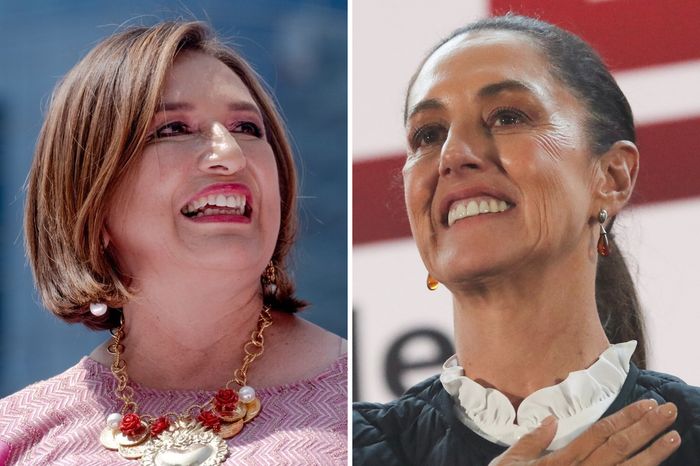Mexico has reached a significant milestone in its history by having two women as leading presidential candidates in its next election. Claudia Sheinbaum of Morena and Xóchitl Gálvez as the opposition’s candidate, both accomplished leaders in their respective fields, are making their bid for the presidency. The news has sparked discussions worldwide about gender parity and representation in politics, and Mexico’s decision to choose one of these women will have tremendous implications for the country’s future. In this article, we will delve deeper into this historic first and explore what it means for Mexico and beyond.
This achievement is a testament to times changing and the shift in attitudes towards gender equality. Women have been underrepresented in leadership roles globally, and this breakthrough has caught the world’s attention. Claudia Sheinbaum, who was previously Mexico City’s mayor, has a strong electoral track record and is a protégé of the current Mexican President, Andrés Manuel López Obrador. In contrast, Xóchitl Gálvez, an Indigenous engineer, is considered a technology entrepreneur and is an outstanding representation of the entrepreneurial spirit of Mexico. Both candidates are formidable contenders, and it will be an exciting race to watch.
This is not the first time women have competed for the presidency in Mexico as in 2018, three female candidates participated in the election. However, it is the first time women are leading candidates in the polls, which reflect the changing attitudes towards gender parity in Mexico. The number of women in Mexican politics has also increased in recent years, and this historic first marks Mexico’s significant move towards gender parity. Women face unique challenges in politics and business, and such an achievement is a step towards creating a more level playing field for all.
This breakthrough has also generated discussion around the world highlights the pressing need for global progress towards equitable representation in political leadership roles. According to the World Economic Forum, the global average of women in parliamentary positions is only 25%. While significant strides have been achieved in providing women with equal access to education, healthcare, and jobs, we still have a long way to go towards creating gender equality. Mexico’s landmark efforts towards making the government more gender-balanced promote the broader concept of the importance of diversity in politics. It is only by creating such a representative democracy that we can encourage growth and innovation in all sectors of society, not just politics.
Mexico’s historic first of its two female presidential candidates marks an exciting milestone in global gender equality. There has been a concerted effort towards empowering women in leadership positions around the world, and this feat achieved by Mexico, the world’s largest Spanish-speaking country, is groundbreaking. This development shows that attitudes towards gender equality are shifting, and the world is taking notice. It’s a strong sign towards gender parity, the growing acknowledgement of the importance of diversity in politics, and we are all poised to watch how things unfold in the coming months with great anticipation.


